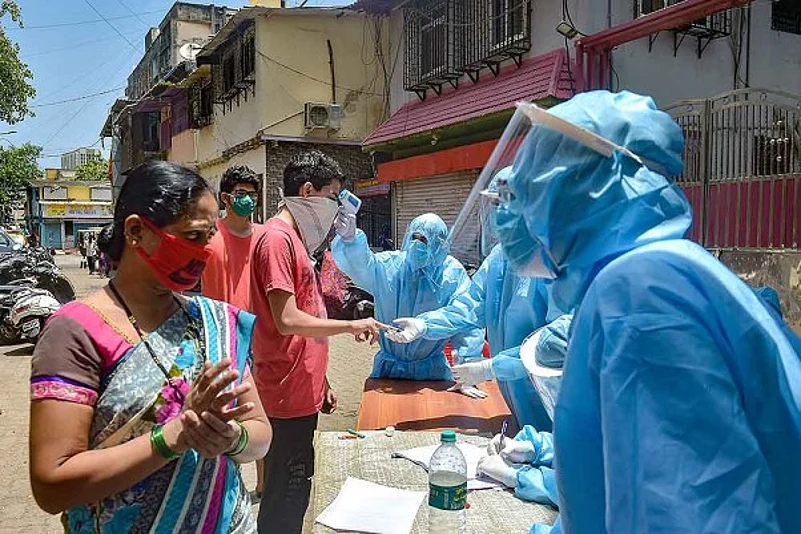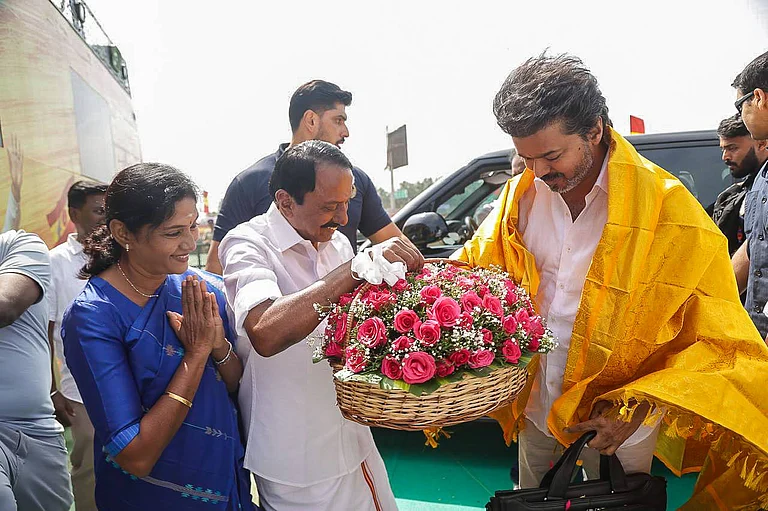As India's Covid-19 curve continues to rise, there are no clear answers to the vexed question of whether India is in the grip of community transmission or not. Dr M C Mishra, former director, All India Institute of Medical Sciences (AIIMS) says that community transmission has been well established in the country and there was lax on the part of authorities in implementing strict protocol from early March in curbing the spread of the disease. Excerpts:
Q) Despite the rising cases in Delhi, Mumbai, Chennai and other cities, the government seems to be in denial of community transmission. What is your take on this?
If there is no community transmission, why are we reporting nearly 10,000 positive cases a day? If it’s not community spread, where is this number coming from? If I say no community spread, I am closing my eyes and saying it is dark. There's no point in denying the truth. Nobody is coming from overseas now. Community transmission is taking place because we are not able to trace the contact. Recently in AIIMS, close to 400, including resident doctors, faculty and their relatives, were identified as Covid-19 positive. Almost half of them said that they didn’t get the infection from the hospital but from outside. Outside infection means community spread. And these people have not travelled overseas.
Q) The findings of ICMR’s Sero surveys to assess community transmission of disease in hotspots are still awaited. Do you think we should have conducted the antibody tests much earlier?
I would say that there was a delay in conducting antibody tests. There’s no doubt about it. And the reason is until March end, ICMR and us felt that community spread is happening in a very small way. In April, a pilot study was done in this regard and no conclusive evidence was found. Now, it became very relevant as the spread is taking place. ICMR has started the process now. That will also reflect whether herd immunity is taking place to know how much percentage of the population is exposed to the virus. That will guide us which areas need more attention or control with the unlocking of the lockdowns. We have to concentrate on the red zones, hotspots and among the vulnerable groups much more strictly now.
Q) When should have we started antibody tests?
We should have started the antibody tests from April in areas around hotspots. It was important to find out the positives in the first screening through RT-PCR tests. That was done. After that, the antibody tests in buffer zones should have been conducted to know the prevalence. The antibody test helps to ascertain the spread and now it’s important to screen the community around hot spots or red zones.
Q) Looking back, do you think we should have been more vigilant?
We missed out on very strict surveillance of the people arriving from overseas, after Jan 30, when we had the first set of cases in Kerala. If we were vigilant the way we are now, then the situation would have been entirely different in the country. Most of our cases are imported and they were brought by people who travelled abroad. We should have adopted more strict measures instead of just stamping people and sending home. People did not adhere to the protocols and there was no follow up on them.
Kerala has shown us the way in screening the passengers and implementing strict protocols. If the rest of the country had followed them, we would have been in much better position.
Q) Do you think we should have suspended international air travel earlier in March, as some states argue now?
Even if not suspended, we could have quarantined people strictly, but we failed to do so. Nobody could trace a group of 200 air travellers who came to Punjab then. You can imagine the damage done by not tracing 200 people. Then the Tablighi event happened in Nizamuddin. That was a serious damage done to the control of Covid-19 in the country. Airports were partly responsible because 900 of them came from Malaysia and other countries, which had infection by the time. They came through visa and proper channels by the end of February and early March. Why weren’t they screened? None of the international airports except in Kerala was screening passengers properly.
Q) How did the migrant crisis impact the Covid surveillance system?
Earlier, we thought that we would reach peak by end of May. But then the problem of the unorganised employed labour happened after the second lockdown. That was totally out of control. Despite measures by state and central governments, the system collapsed with no physical distancing and precaution.
Q) When will we see the peak?
If we did not have this returning workforce problem, we were expecting the peak by the end of May. This calculation was done at IIT Guwahati and one institution in Singapore. But now we already have cases in the range of 8000-10,000. If after June 15, the number of positives start coming down and the number of testing goes up, one can say that peak can happen in mid-July or end of July. As the returning workforce is still on, we will see the spurt until the end of June. We have to give at least a lead time of two weeks to three weeks because the incubation period of illness is up to 14 days.
Are we testing enough?
Testing still has to go up. We are now doing almost a hundred thousand a day. But testing has to be increased manifold considering the population of India and the number of hot spots. That's why they are bringing in antibody tests now. We should also go for reliable point of care tests.


























